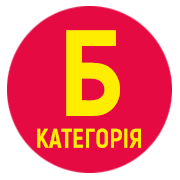PEDAGOGICAL AWARENESS AS ONE OF THE MAIN FACTORS IN SHAPING THE PROFESSIONAL SKILLS OF FUTURE PHYSICAL EDUCATION TEACHERS
DOI:
https://doi.org/10.32782/olimpspu/2025.2.9Keywords:
pedagogical consciousness, professional skills, physical education, pedagogical activity, educational technologies, pedagogical ethics, innovative approaches in educationAbstract
The article is devoted to the role of pedagogical consciousness as a key factor in the professional skills formation of future physical education teachers. The authors emphasize that pedagogical consciousness is the basis for future teachers to understand their role in the educational process, as well as for the development of their professional competencies. Pedagogical consciousness is understood as an integral quality of the personality, which includes the awareness of the goals, objectives and methods of pedagogical activity, as well as the ability to reflect and introspect. It is emphasized that the formation of pedagogical consciousness of future physical education teachers should be based on a systemic approach, which involves the integration of theoretical knowledge, practical skills and personal qualities. The authors identify the main components of pedagogical consciousness, such as motivational-value, cognitive, emotional- volitional and activity, which interact with each other and provide effective professional training.Particular attention is paid to the role of innovative teaching methods in the development of pedagogical consciousness, among them are the use of project methods, interactive technologies, case stages and practice-oriented tasks, which allow future teachers to apply theoretical knowledge in practice, developing critical thinking and a creative approach to solving pedagogical tasks. The authors also emphasize the importance of reflection as a tool for self-analysis and self-improvement, which is an integral part of pedagogical consciousness. This article examines the main stages of the pedagogical consciousness formation of future physical education teachers, starting with the motivational stage, at which interest in the profession is formed, and ending with the stage of professional self- determination, when students realize their role in the educational process. The authors draw attention to the fact that each stage should be accompanied by the active involvement of students in practical activities, which allows them to consolidate knowledge and develop skills.Special attention is paid to the role of personal qualities in the formation of pedagogical consciousness. Among them are communication skills, emotional stability, leadership qualities and the ability to self-organize, which are necessary for successful pedagogical activity.The authors emphasize that the development of these qualities should be integrated into the educational process, which allows future physical education teachers to effectively interact with pupils and create a favorable atmosphere for learning.
References
Ареф’єва Л.П. Особливості професійної підготовки майбутніх учителів фізичної культури в умовах сучасної парадигми освіти. Науково-педагогічні проблеми фізичної культури. Випуск 10. Київ. 2011. С. 17–21.
Бєлікова Н.О. Сучасні тенденції професійної підготовки майбутніх фахівців з фізичного виховання та спорту. Вісник Чернігів. нац. пед. ун-ту. Серія: Педагогічні науки. Фізичне виховання та спорт : зб. наук. пр. Чернігів, 2013. Вип. 112(2). С. 35–39.
Гринченко І.Б. Професійна підготовка майбутніх учителів фізичної культури в Європі й Україні. Проблеми сучасної педагогічної освіти. Серія: Педагогіка і психологія. Ялта. 2012. Вип. 2. С. 2–5.
Демінська Л.О. Вимоги до сучасного вчителя фізичного виховання. Сучасні інформаційні технології та інноваційні методики навчання у підготовці фахівців: методологія, теорія, досвід, проблеми : зб. наук. пр. Донецьк, 2011. Вип. 28. С. 94–96.
Захаріна Є.А. Теоретичні і методичні засади професійної підготовки майбутніх учителів фізичної культури до позакласної та позашкільної оздоровчо-виховної роботи : дис. … д-ра пед. наук : 13.00.04. Класичний приватний університет. Запоріжжя, 2013. 525 с.
Карасєвич С.А. Підготовка майбутніх учителів фізичної культури до фізкультурно-спортивної діяльності у закладах загальної середньої освіти, монографія. МОН України, Уманський держ. пед. унів-т ім. П. Тичини. Умань: ВПЦ «Візаві», 2018. 204 с.
Круцевич Т.Ю. Теорія і методика фізичного виховання: підручник для студ. вищ. навч. закл. фіз. виховання і спорту: К.: Олімпійська література, 2008. 366 с.
Однолеток Т.В. Професійна підготовка майбутніх учителів фізичної культури як педагогічна проблема. Педагогіка, психологія та медико-біологічні проблеми фізичного виховання і спорту. 2009. №9. С. 101–104.
Пеньковець Д.В. Теоретичні аспекти формування професійних якостей у майбутніх учителів фізичної культури. Зб. наук. пр. Уманського держ. пед. ун-ту. Умань, 2013. Ч. 3. С. 157–161.
Petro Rybalko, Oleksandr Bychkov, Liudmyla Maksymenko, Svitlana Shcherbyna, Viktoriia Ivanova The formation of a competent approach as the Basis of the professional development of the Future teacher of physical education Conhecimento & Diversidade, Niterói, v. 15, n. 37Abr./Jun. 2023
Semenikhina О. В., Yurchenko А. О., Rybalko П. Ф., Shukatka О. В., Kozlov Д. О., & Drushlyak М. Г. (2022). Preparation of future specialists in physical culture and sports for the use of digital health means in professional activity. Information Technologies and Learning Tools, 89(3), 33–47.
Товт В.А. Теорія і методика фізичного виховання в системі підготовки бакалаврів за спеціальністю Середня освіта (Фізична культура): навч. посіб. Ужгород: ТОВ «БЕСТ-прінт», 2022. 225 с.
Черненко С.О. Теорія й методика фізичного виховання : навчальний посібник у 2 частинах. Краматорськ : ДДМА, 2021. Ч. 1. 215 с.
Downloads
Published
Issue
Section
License

This work is licensed under a Creative Commons Attribution-NonCommercial 4.0 International License.







